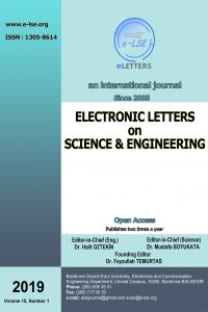Optimization of attendee lists by using metaheuristics: A case study on symposium planning in a college
Kombinasyonel optimizasyon problemleri fazlaca dikkat çeken ve endüstriyel dünyadan eğitim uygulamalarına kadar uzanan hızla gelişen bir araştırma sahasını oluşturmaktadır. Bazı meta-sezgisellerin ayrık formları bu türden problemler için optimal çözümler üretebilmektedirler. Bu makalede verilen vaka çalışmasında, sempozyum oturumlarının optimize edilmesi için göçmen kuşlar optimizasyon algoritması, yapay arı koloni algoritması ve genetik algoritmanın ayrık versiyonlarını kullanılmıştır. Her üç algoritma kullanılarak sempozyum oturumları için optimal katılımcı listesi kombinasyonları oluşturulmuştur. Katılımcı listelerinin optimize edilmesi katılımcıların oturumlara dengeli dağılımlarını sağlamıştır. Böylece sempozyum organizatörlerinin büyük salon gereksinimleri minimize edilmiştir. Daha sonra, problem kapsamı farazi olarak genişletilmiş ve önerilen yöntemler genişletilmiş problemler üzerinde denenerek yöntemlerin performansları bir kes daha test edilmiştir. Sonuçlar, problem boyutunda büyük artışlar olsa bile, bu makalede verilen meta-sezgisel algoritmaların sempozyum oturum optimizasyonu problemi için iyi performans sergileyeceğini ortaya koymuştur.
Anahtar Kelimeler:
Meta-sezgisel planlama, sempozyum oturum optimizasyonu, göçmen kuşlar optimizasyon algoritması, yapay arı koloni algoritması, genetik algoritma
Combinatorial optimization problems are drawing more attention and rapidly developing research field ranging from industrial world to educational applications. Discrete forms of some metaheuristics can generate optimal solutions to such kind of problems. Case study reported in this paper uses discrete versions of the migrating birds optimization algorithm, the artificial bee colony algorithm and the genetic algorithm to solve given symposium session optimization problem. Optimal combinations of the attendee lists for symposium sessions were created by using these three algorithms. Optimized attendee lists provided balanced distributions of attendee to the sessions. Thus, large saloon requirements of symposium planners were minimized. Then, scope of the problem was extended hypothetically, and proposed methods were employed one more time in order to measure their performances on the extended problem. The results show that metaheuristic algorithms used in this paper can achieve good combinatorial optimizations on symposium session optimization problem even if big increases occur in problem dimension.
Keywords:
Metaheuristic planning, symposium session optimization, migrating birds optimization algorithm, artificial bee colony algorithm, genetic algorithm,
- ISSN: 1305-8614
- Yayın Aralığı: Yılda 2 Sayı
- Başlangıç: 2005
- Yayıncı: Fevzullah TEMURTAŞ
Sayıdaki Diğer Makaleler
Bir Robotun Görüntü Tanıma Sistemi
